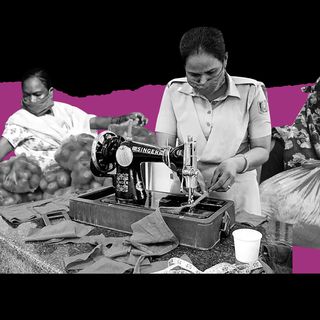In an effort to promote family planning among migrant laborers returning home, the Bihar government is distributing contraceptives and condoms after their mandatory 14-day institutional quarantine period. Roughly more than two lakh kits with contraceptives have already been distributed in seven districts and the state’s health department is counseling migrants about safe sex.
While the executive director of the Bihar State Health Society, Manoj Kumar, said the initiative is an effort to combat the increase in the number of unwanted pregnancies the state might see post lockdown, migrants say a lot more could have been done to ease their immediate concerns — money, jobs and food.
“They couldn’t provide us proper food and clean toilets at the quarantine centres but are giving us condom packets as return gifts with a rider to maintain social distance…what more ridicule can the government heap on us,” a migrant from Basdila quarantine center in Gopalgunj told The Hindu over the phone.
“The government should distribute foodgrains and generate employment for us rather than condoms and contraceptives,” another migrant laborer added. However, Kumar says, with Bihar being the third-most populous state in the country, such “initiatives are relevant to promote family planning.”
Related on The Swaddle:
ICMR Says Coronavirus May Spread from Mother to Baby Before or During Birth
In addition to being a densely populated state, Bihar also happens to have the highest fertility rates in the country, with 3.4 children per woman, according to the last data published by the National Family Health Survey in 2016. And very few women between ages 15 and 39 report using contraceptives in the state.
With existing problems, such as lack of access to contraception, poor family planning methods, the lockdown is only going to make things worse. Reports have already projected seven million unintended pregnancies in the world in the coming months.
And in India, a proliferation of unwanted pregnancies could be disastrous for various reasons. First, unwanted pregnancies raise the possibility of malnutrition, high infant, and maternal mortality rates. With the country’s public health infrastructure already burdened with Covid19 cases, not only are pregnant patients dealing with limited service at hospitals, shortage of ambulances and lack of staff to take care of them, but women are also beingdenied abortions.
Bihar’s step to distribute condoms could be looked at as an effective way to address a serious problem rather than having to deal with its consequences when the state’s health department already has a larger, more urgent problem at hand — Covid19.




